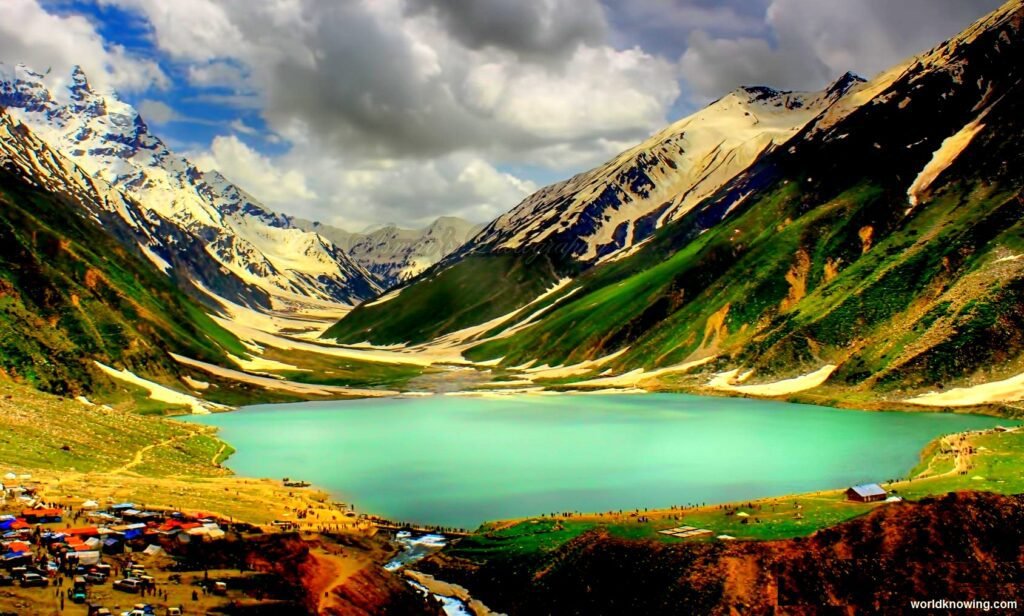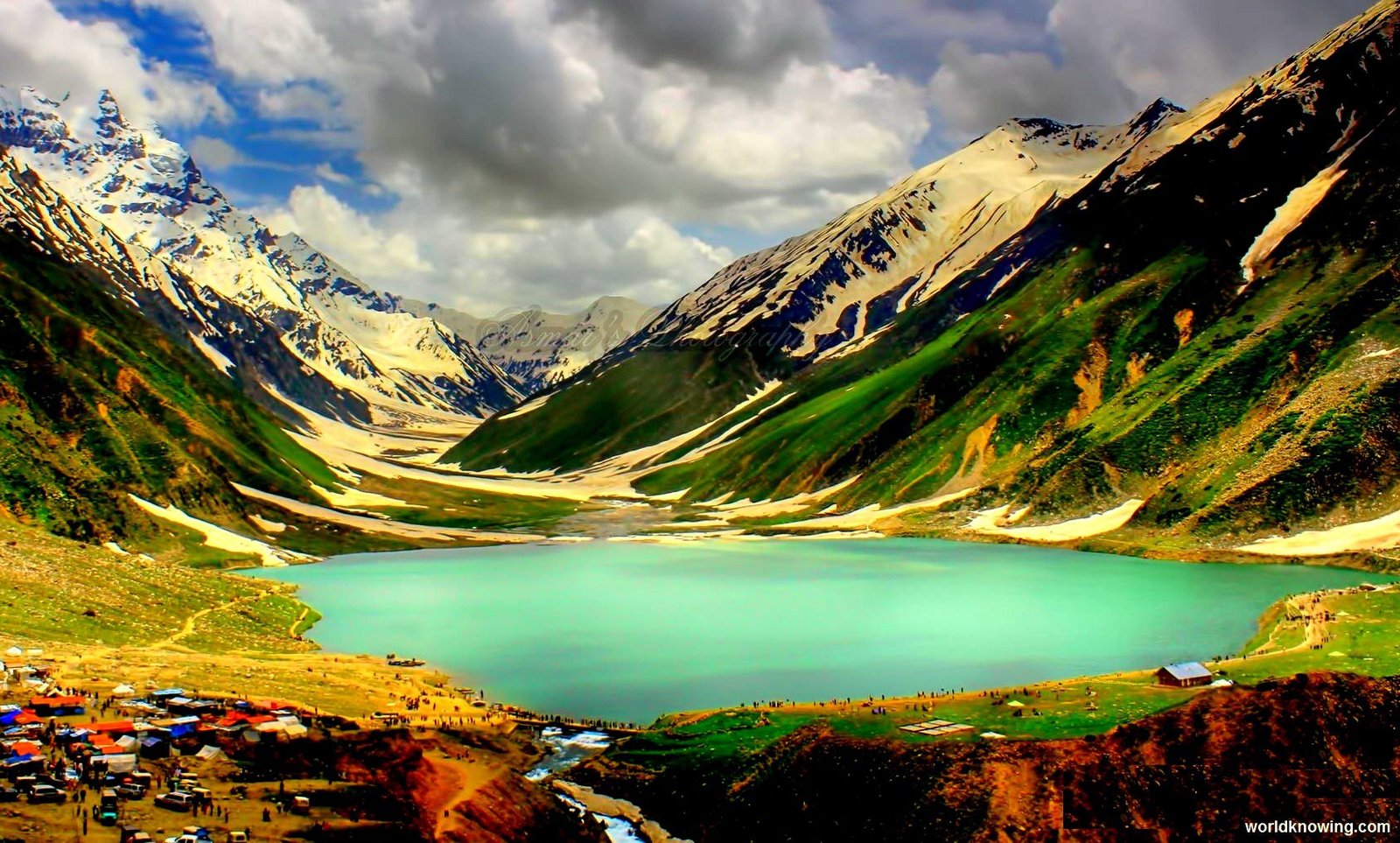Pakistan, a land of breathtaking landscapes, rich cultural heritage, and diverse ecosystems, is increasingly becoming a sought after destination for travelers. From the towering peaks of the Karakoram and Himalayan ranges to the serene beaches of the Arabian Sea, the country offers a wealth of natural beauty. However, as tourism grows, so does the need to promote ecofriendly practices to preserve these treasures for future generations. Ecofriendly tourism, also known as sustainable tourism, is emerging as a vital approach to balancing economic growth with environmental conservation in Pakistan.
The Potential of EcoFriendly Tourism in Pakistan
Pakistan’s natural wonders are unparalleled. The northern regions, including GilgitBaltistan and Khyber Pakhtunkhwa, are home to some of the world’s highest mountains, lush valleys, and glacial lakes. The Hunza Valley, Fairy Meadows, and Skardu are just a few examples of destinations that attract adventurers and nature lovers alike. In the south, the mangrove forests of the Indus Delta and the pristine beaches of Gwadar offer unique coastal experiences. Additionally, the country’s rich biodiversity, including endangered species like the snow leopard and the Indus River dolphin, makes it a hotspot for wildlife enthusiasts.

EcoFriendly Tourism in Pakistan
However, the influx of tourists, if not managed responsibly, can lead to environmental degradation, pollution, and the depletion of natural resources. This is where ecofriendly tourism comes into play. By adopting sustainable practices, Pakistan can protect its natural and cultural assets while reaping the economic benefits of tourism.
Principles of EcoFriendly Tourism
Ecofriendly tourism focuses on minimizing the negative impact of travel on the environment and local communities. Key principles include:
1. Environmental Conservation: Promoting activities that protect natural habitats, reduce waste, and conserve water and energy.
2. Community Involvement: Ensuring that local communities benefit from tourism through job creation, cultural preservation, and fair economic opportunities.
3. Education and Awareness: Educating tourists and stakeholders about the importance of sustainability and responsible travel.
4. LowImpact Travel: Encouraging practices such as using public transport, reducing plastic usage, and supporting ecofriendly accommodations.
Steps Toward Sustainable Tourism in Pakistan
1. Promoting EcoFriendly Accommodations
The rise of ecolodges and green hotels in Pakistan is a positive step. These establishments use renewable energy sources, recycle waste, and employ local staff. For example, the Serena Hotels chain has implemented ecofriendly initiatives, including solar energy and water conservation systems.
2. Encouraging Responsible Trekking and Camping
Trekking and camping are popular activities in Pakistan’s northern regions. To minimize environmental impact, tourists should follow the “Leave No Trace” principle, which includes packing out all waste, avoiding singleuse plastics, and respecting wildlife.
3. Supporting Local Communities
Ecofriendly tourism emphasizes the importance of empowering local communities. By purchasing locally made products, hiring local guides, and staying in communityrun guesthouses, tourists can contribute to the local economy and preserve cultural heritage.
4. Government and NGO Initiatives
The Government of Pakistan, along with nongovernmental organizations (NGOs), is playing a crucial role in promoting sustainable tourism. Projects like the “Green Tourism Pakistan” initiative aim to raise awareness about ecofriendly practices and develop infrastructure that supports sustainable travel.
5. Wildlife Conservation Efforts
Pakistan is home to several national parks and wildlife sanctuaries, such as Deosai National Park and Hingol National Park. These protected areas are vital for conserving biodiversity. Tourists can support conservation efforts by visiting these parks responsibly and contributing to local conservation projects.
Challenges and the Way Forward
Despite its potential, ecofriendly tourism in Pakistan faces several challenges. These include a lack of awareness among tourists, inadequate infrastructure, and the need for stricter regulations to prevent environmental damage. To overcome these hurdles, a collaborative effort is required from the government, private sector, local communities, and tourists.
Awareness Campaigns: Launching nationwide campaigns to educate tourists and locals about the importance of sustainable tourism.
Investment in Infrastructure: Developing ecofriendly transportation options, waste management systems, and renewable energy sources.
Policy Implementation: Enforcing laws to protect natural sites and penalize those who violate environmental regulations.
Conclusion
Ecofriendly tourism is not just a trend; it is a necessity for Pakistan to preserve its natural and cultural heritage while fostering economic growth. By embracing sustainable practices, Pakistan can position itself as a global leader in responsible tourism. Travelers, too, have a role to play by making conscious choices that benefit the environment and local communities. Together, we can ensure that Pakistan’s beauty remains untouched for generations to come.
As the world becomes more environmentally conscious, Pakistan has the opportunity to shine as a model of ecofriendly tourism. By prioritizing sustainability, the country can unlock its full potential as a destination that offers not only awe inspiring experiences but also a commitment to protecting the planet.
FAQs on EcoFriendly Tourism in Pakistan: A Path to Sustainable Development
1. What is ecofriendly tourism?
Ecofriendly tourism, also known as sustainable tourism, refers to responsible travel practices that minimize the negative impact on the environment and local communities. It focuses on conserving natural resources, supporting local economies, and promoting cultural preservation while providing meaningful experiences for travelers.
2. Why is ecofriendly tourism important for Pakistan?
Pakistan is home to diverse ecosystems, stunning landscapes, and rich cultural heritage. Ecofriendly tourism is crucial to protect these natural and cultural assets from the negative effects of mass tourism, such as pollution, habitat destruction, and resource depletion. It also ensures that local communities benefit economically while preserving their traditions and environment.
3. What are some ecofriendly destinations in Pakistan?
Pakistan offers numerous ecofriendly destinations, including:
Northern Areas: Hunza Valley, Fairy Meadows, Skardu, and Deosai National Park.
Coastal Regions: Gwadar’s beaches and the mangrove forests of the Indus Delta.
Wildlife Sanctuaries: Hingol National Park and Chitral Gol National Park.
These destinations are ideal for travelers seeking sustainable and lowimpact experiences.
4. How can tourists practice ecofriendly tourism in Pakistan?
Tourists can adopt the following practices:
Use ecofriendly accommodations and transportation.
Follow the “Leave No Trace” principle during trekking and camping.
Avoid singleuse plastics and reduce waste.
Support local businesses and purchase locally made products.
Respect wildlife and natural habitats.
5. What are some examples of ecofriendly accommodations in Pakistan?
Several ecofriendly accommodations in Pakistan prioritize sustainability, such as:
Serena Hotels: Known for their solar energy and water conservation systems.
Ecolodges in Hunza and Skardu: These lodges use renewable energy and employ local staff.
Communityrun guesthouses: These provide authentic experiences while supporting local economies.
6. How does ecofriendly tourism benefit local communities?
Ecofriendly tourism creates job opportunities for locals, promotes cultural preservation, and ensures that economic benefits stay within the community. It also encourages the development of infrastructure and services that improve the quality of life for residents.
7. What role does the government play in promoting ecofriendly tourism?
The Government of Pakistan, along with NGOs, is actively promoting sustainable tourism through initiatives like “Green Tourism Pakistan.” These efforts include raising awareness, developing ecofriendly infrastructure, and enforcing regulations to protect natural and cultural sites.
8. What challenges does ecofriendly tourism face in Pakistan?
Challenges include:
Lack of awareness among tourists and locals.
Insufficient ecofriendly infrastructure.
Weak enforcement of environmental regulations.
Balancing tourism growth with conservation efforts.
9. How can tourists contribute to wildlife conservation in Pakistan?
Tourists can support wildlife conservation by:
Visiting national parks and sanctuaries responsibly.
Avoiding activities that disturb wildlife.
Contributing to local conservation projects and initiatives.
Educating themselves about endangered species and their habitats.
10. What is the “Leave No Trace” principle?
The “Leave No Trace” principle is a set of guidelines for minimizing environmental impact during outdoor activities. It includes:
Packing out all waste.
Avoiding damage to natural habitats.
Respecting wildlife and maintaining a safe distance.
Using designated trails and campsites.
11. How can Pakistan become a global leader in ecofriendly tourism?
Pakistan can achieve this by:
Investing in sustainable infrastructure and renewable energy.
Launching nationwide awareness campaigns about ecofriendly practices.
Enforcing strict environmental regulations.
Collaborating with international organizations to promote sustainable tourism.
12. What are the longterm benefits of ecofriendly tourism for Pakistan?
The longterm benefits include:
Preservation of natural and cultural heritage.
Economic growth and poverty alleviation in local communities.
Enhanced global reputation as a sustainable travel destination.
Protection of biodiversity and ecosystems for future generations.
13. How can I plan an ecofriendly trip to Pakistan?
To plan an ecofriendly trip:
Research ecofriendly accommodations and tour operators.
Choose lowimpact activities like hiking, birdwatching, or cultural tours.
Pack sustainably by avoiding singleuse plastics and carrying reusable items.
Support local businesses and respect local customs and traditions.
14. What are some ecofriendly activities to do in Pakistan?
Ecofriendly activities include:
Trekking in the Karakoram or Himalayan ranges.
Exploring national parks and wildlife sanctuaries.
Visiting cultural heritage sites and supporting local artisans.
Participating in communitybased tourism initiatives.
15. How can I learn more about ecofriendly tourism in Pakistan?
You can learn more by:
Visiting official tourism websites and ecotourism blogs.
Connecting with local NGOs and conservation organizations.
Reading about sustainable travel practices and guidelines.
Engaging with ecofriendly tour operators and travel agencies.






